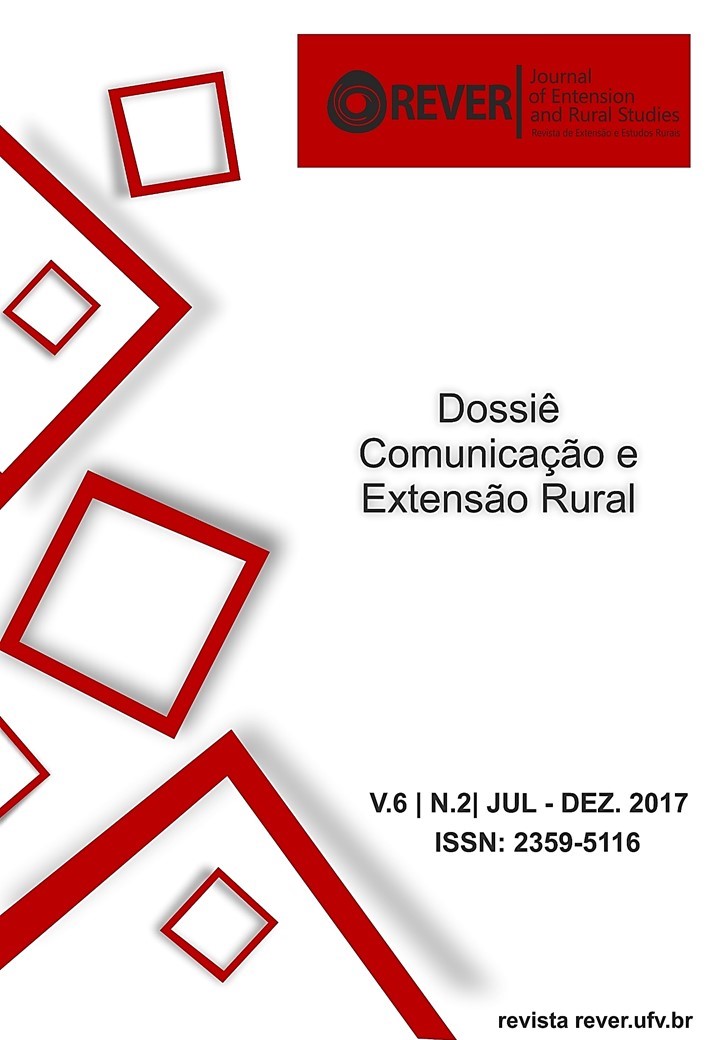TRUST ME! EXAMINING THE CONTRACTUAL RELATIONSHIPS BETWEEN SUGARCANE PRODUCERS AND MILLS IN THE CERRADO
DOI:
https://doi.org/10.18540/rever62201798-117Resumen
An increase in biofuel demand aligned with public policies has fueled the expansion of sugarcane into Goiás and Mato Grosso do Sul in the Cerrado. Geographic, temporal and physical asset specificities delimit the area from which mills can procure sugarcane, making sugarcane producers and mills dependent on each other. Thus contracting is a common practice in sugarcane production in the Cerrado and its success directly impacts the sustainability of the ethanol expansion. We fill a gap in the literature on producers’ contract acceptance and trust by determining the factors that affect contract perception and trust with contractors. Using primary data from the states of Goiás and Mato Grosso do Sul we estimate ordered logit models using producer’s perceptions, their characteristics and that of their enterprise. Profits and experience are important factors for a producer when considering a contract. Communication, transparency and other farmer’s perception of a mill were important in building trust. Mills wanting to improve their chances of signing a contract should focus on more participation in the community and on better communication with farmers.
Descargas
Citas
CONAB - Companhia Nacional de Abastecimento. 2013. Perfil do Setor do Açúcar e do Etanol no Brasil. Brasília: CONAB. Available at: www.conab.gov.br/OlalaCMS/uploads/arquivos/ 13_10_02_11_28_41_ perfil_sucro_2012.pdf. (Accessed July 12, 2017)
D’Silva, J. L., Uli, J., & Samah, B. A. (2009). “A review of contract farming and factors that impinge youths acceptance to contract farming”. European Journal of Social Sciences, 11(2), 328-338.
Echánove, F., & Steffen, C. (2005). Agribusiness and farmers in Mexico: the importance of contractual relations. The Geographical Journal, 171(2), 166-176.
Greene, W.H. (2012). Econometric Analysis. 7th ed. Upper Saddle River, NJ, USA: Prentice Hall.
Lusk, J.L., and D. Hudson. (2004). “Willingness-to-pay estimates and their relevance to agribusiness decision making.” Review of Agricultural Economics 26(2):152–169.
IBGE – Brazilian Institute of Statistics and Geography. 2014. “Produção Agrícola Municipal (PAM).” Available at: http://www.sidra.ibge.gov.br/. (Accessed July 12, 2017)
IBGE – Brazilian Institute of Statistics and Geography. 2006. “Censo Agropecuario 2006.” Available at: http://www.sidra.ibge.gov.br/. (Accessed July 12, 2017)
Moraes, M.A.F.D. de, and D. Zilberman. (2014). “Production of ethanol from sugarcane in brazil: from state intervention to a free market.” Springer Science & Business Media.
McKelvey, R. D., and Zavoina, W. (1975). A statistical model for the analysis of ordinal level dependent variables. Journal of mathematical sociology, 4(1), 103-120.
Oliveira, G., 2013. Estrangeiros são a nova geração de usineiros. O Globo. Available at: https://oglobo.globo.com/economia/estrangeiros-sao-nova-geracao-de-usineiros-8232513. (Accessed Sep. 2017)
Picanço Filho, A.F., and J.O.B. Marin. 2012. “Sugarcane Supply Agreement: The Power Asymmetry Between Agents.” INTERAÇÕES 13 (2): 191–202.
Picanço Filho, A.F. 2012a. “The Sugar Cane Political Network and its Power Resources in The Goiás State, Brazil.” Pesquisa Agropecuária Tropical 42 (2): 189–97.
Picanço Filho, A.F. 2010. “Contratos Agrários na Agroindústria Canavieira em Goiás: Legalidades e Conflitos.” MS thesis, University of Goias.
Procana. 2013. Brazilian Sugar and Ethanol Guide 2013. Ribeirão Preto: ProCana Brasil.
Rudorff, B.F.T., D.A. Aguiar, W.F. Silva, L.M. Sugawara, M. Adami, and M.A. Moreira, M.A., 2010. “Studies on the Rapid Expansion of Sugarcane for Ethanol Production in São Paulo State (Brazil) Using Landsat Data.” Remote Sensing 2 (4), 1057-1076.
Sant'Anna, A. C., Bergtold, J., Caldas, M., and Granco, G. (2016). Analyzing sugarcane production contracts in Brazil: What do the farmers really want? In 2016 Annual Meeting, July 31-August 2, 2016, Boston, Massachusetts (No. 235655). Agricultural and Applied Economics Association.
Sant'Anna, A. C., G. Granco, J. Bergtold, M.M. Caldas, T. Xia, P. Masi, T. Link, and W. Lorenzani. (2016) “Chapter 13: The Challenges of the Sugarcane Expansion: How do Producers and Land Owners Think and Act?” In: Forty Years of Ethanol in Brazil: Hide or Confront the Crises? Santos, G. (eds) Brasilia: IPEA, 2016.
Sant’Anna, A.C., A. Shanoyan, J.S. Bergtold, M.M. Caldas, and G. Granco. (2016). “Ethanol and sugarcane expansion in Brazil: what is fueling the ethanol industry?” International Food and Agribusiness Management Review 19(4):163–182.
Schipmann, C., and Qaim, M. (2011). Supply chain differentiation, contract agriculture, and farmers’ marketing preferences: The case of sweet pepper in Thailand. Food Policy, 36(5), 667-677.
Singh, S. (2000). Theory and practice of contract farming: a review. Journal of social and economic development. Retrieved from http://203.200.22.249:8080/jspui/bitstream/123456789/9226/1/JSED_V2-I2_228-246.pdf
Vavra, P. (2009), “Role, Usage and Motivation for Contracting in Agriculture”, OECD Food, Agriculture and Fisheries Working Papers, No. 16, OECD Publishing. doi: 10.1787/225036745705





